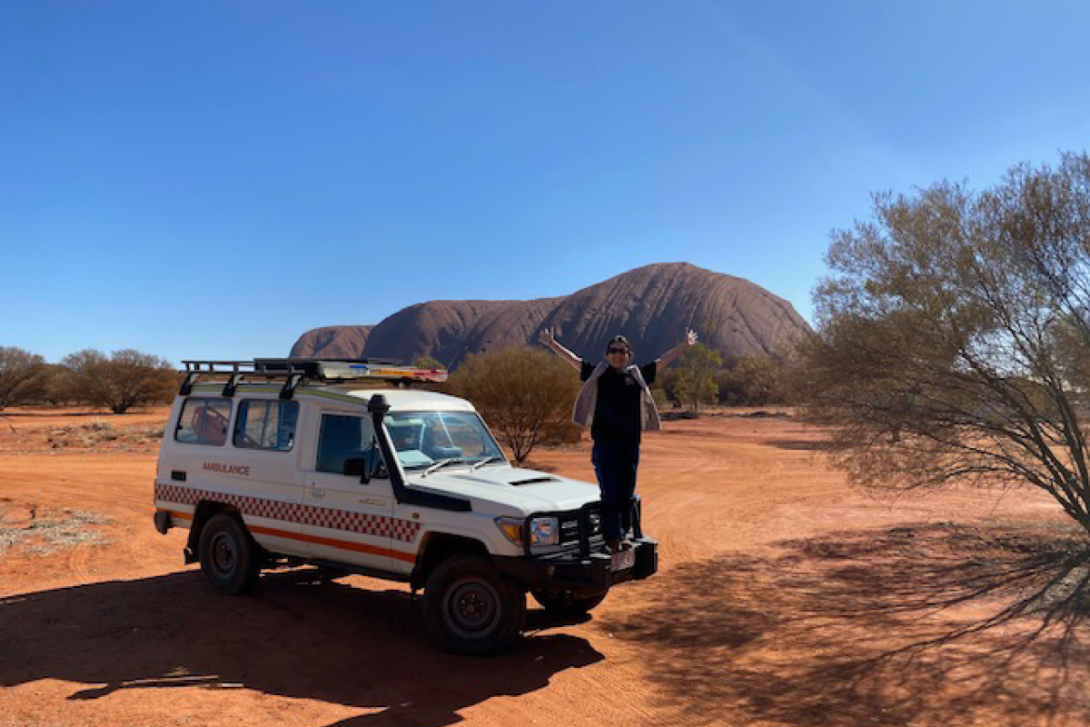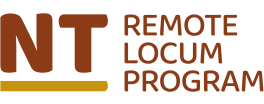
Connecting Cultures: Perspectives of a Remote Area Nurse working in the Northern Territory was first published in The Health Advocate on 24 February 2022. Access the full magazine here.
For Remote Area Nurse Mayuko Homma, working in Northern Territory (NT) communities has brought unexpected bonuses.
‘I discovered Japanese and Indigenous people share some aspects of communication,’ she says, ‘We don’t, for example, like someone staring directly in our eyes.’
May found this intimidating when, not speaking a word of English, she arrived in Melbourne in 1995. Close physical distance was another issue.
‘When volunteering at a hospice, I gave my magnolia painting to a patient’s husband, as it was the couple’s favourite flower. He kissed my cheek and hugged me in thanks. I freaked out. My generation only does that in an intimate relationship, not even with our parents once we are grown up.’
These cultural differences stood May in good stead in Aboriginal and Torres Strait Islander communities. ‘I find it works well to sit alongside, but not too close, to an Indigenous person at a clinic consultation. Both of us look down at our own hands or thighs and occasionally acknowledge one another with a glance.
‘Often there is a long silence, time to think about whatever we are discussing. Being Japanese, we do a lot of silence and non-verbal communication so I’m comfortable with that.’
Growing up in Japan’s most densely-populated city of Tokyo, May dreamt of a life of travel overseas. After working as a registered nurse, she moved to Australia first learning English, and then pursuing further nursing studies. She now lives in Adelaide.
May put travel on hold as she worked and raised a family. ‘Now that I’ve taught my two sons how to cook, clean and be independent, I’ve finally landed my dream job.’
The Remote Area Health Corps (RAHC) dream job that, ‘comes with free travel, accommodation and great pay’ has provided May with her own, work, independence, and more responsibility.
‘My job in a city location is limited in comparison. Here I can do more in the medical sphere, in spots where I may be only one of two in a nurse-only clinic. We work as part of a team and Northern Territory doctors are great at advising over the phone. I’ve extended my skills with amazing visiting nurses, doctors and Aboriginal and Torres Strait Islander health workers in those communities.’
RAHC offers flexibility, allowing May to select placements in between her other work, and her son’s school holidays. Her favourite spot so far is Watiyawanu — Mount Liebig, the highest peak of the MacDonnell Ranges, some 300 kilometres west of Alice Springs, with its traditional culture and 150 inhabitants. May loves this spot for the people and the natural beauty. ‘In smaller communities especially, you can build up rapport by seeing the same individuals and watching their progress over a few weeks.
‘Women can be shy about sexual health so it may take a couple of weeks for them to trust me and return to talk about contraception or cervical screenings (pap smears).
‘It’s fulfilling, also, to suture a deep laceration and follow that up later, ensuring the wound is healing well without complications, before removing the stitches.
‘The best part of all is seeing patients happy with the outcome.’
There are not many people with Asian heritage in Aboriginal and Torres Strait Islander communities, May says, and locals invariably consider her to be Chinese, telling her they like Jackie Chan movies. ‘Me too but I’m from Japan. You know, Toyota, Nintendo and Pokemon.’
So far, May has been to Mutitjulu and Lajamanu in Central Australia, Watiyawanu, Elcho Island (Galiwin’ku) and Maningrida in the Top End.
‘I’m now hooked on fishing, after a slow start.’ After sharing her squid bait with a local, May watched him catch fish after fish while she had no success. ‘I’ll give you all my bait for one of those fish,’ she said. ‘I found people love exchanging things; my fried rice for seafood or my beading for necklaces, bracelets or earrings made by the ladies. It works brilliantly and it’s a good way to get to know each other.
‘People like my fried rice and dumplings and ask me for recipes. I love this cultural exchange.’
For May, ‘It was a big jump from Tokyo to Melbourne, then from Adelaide to remote areas.
Each time I’d ask myself, ‘Where are all the people’?’
Now she feels at home in the small population of the Territory. ‘When people ask why, I say you have to go there to feel it.
‘I feel a strong connection to the earth, there’s something very spiritual in the land of Aboriginal and Torres Strait Islander people. And the sceneries are magnificent. It’s such an honour to be able to work in these special places that not many people have the privilege to go to.’
The Remote Area Health Corps (RAHC) is a federally-funded programme established to recruit, culturally orientate and place Health Professionals in remote Aboriginal and Torres Strait Islander communities in the Northern Territory (NT).
